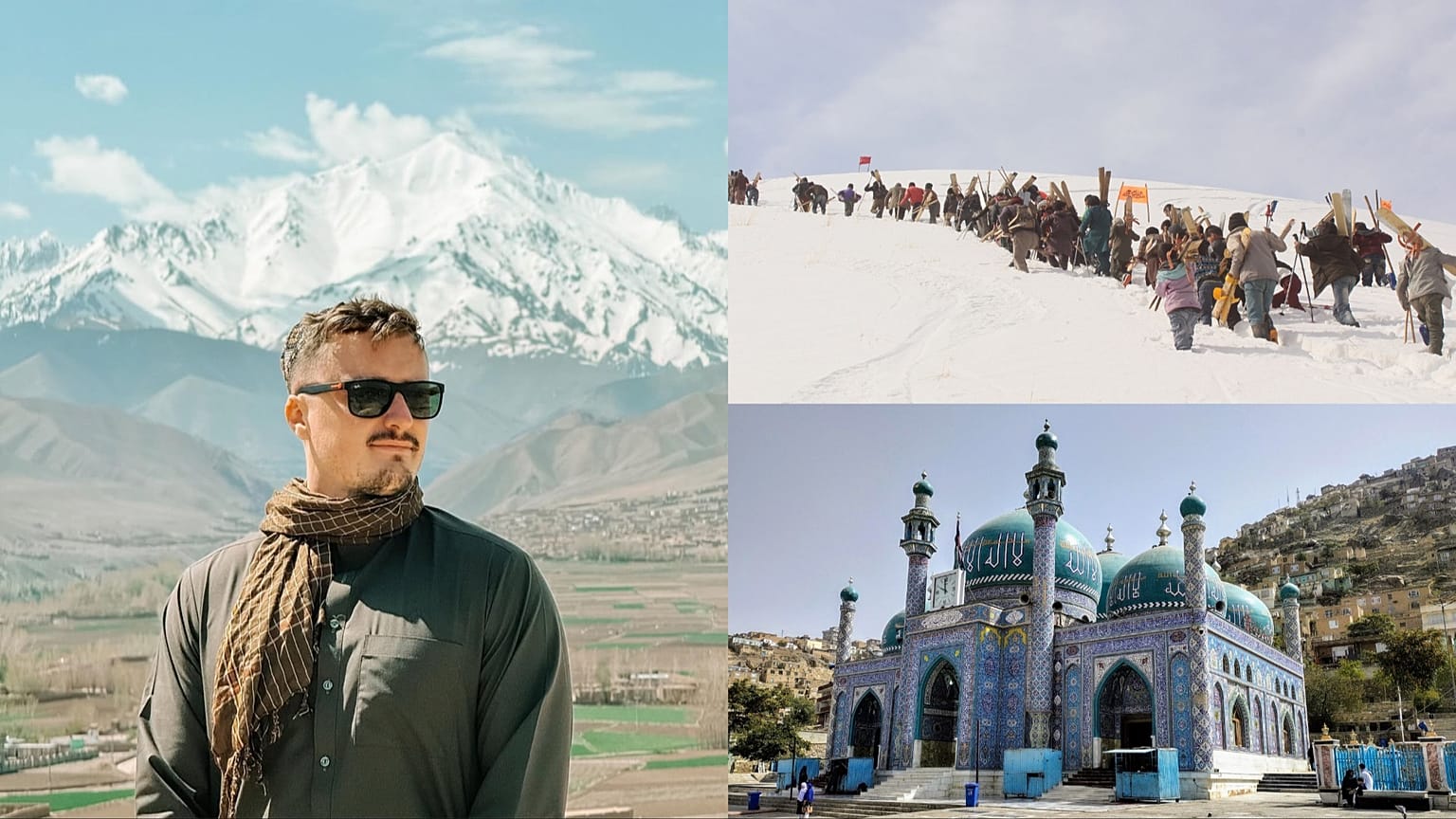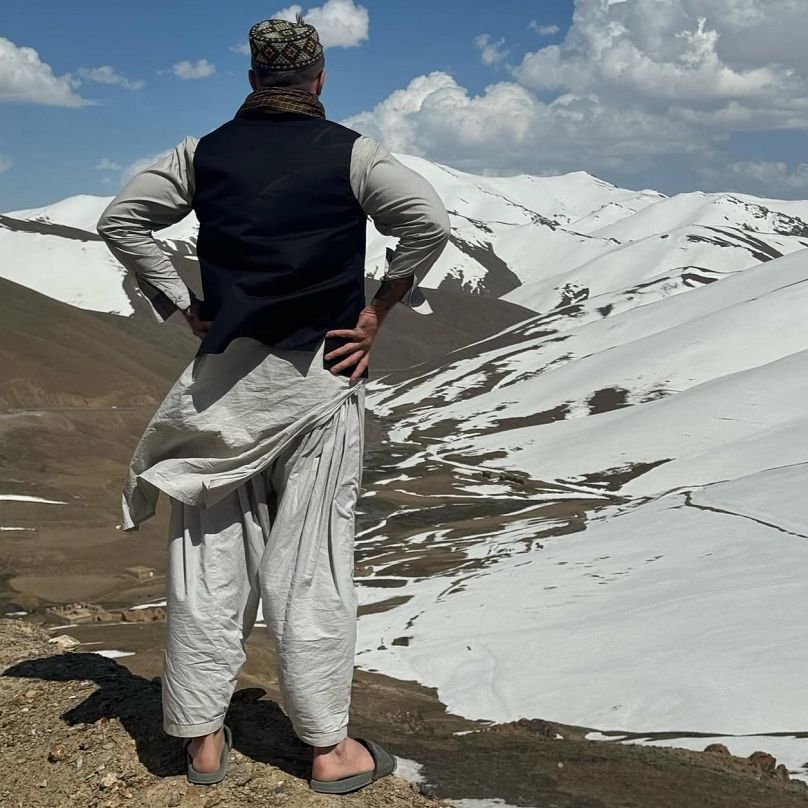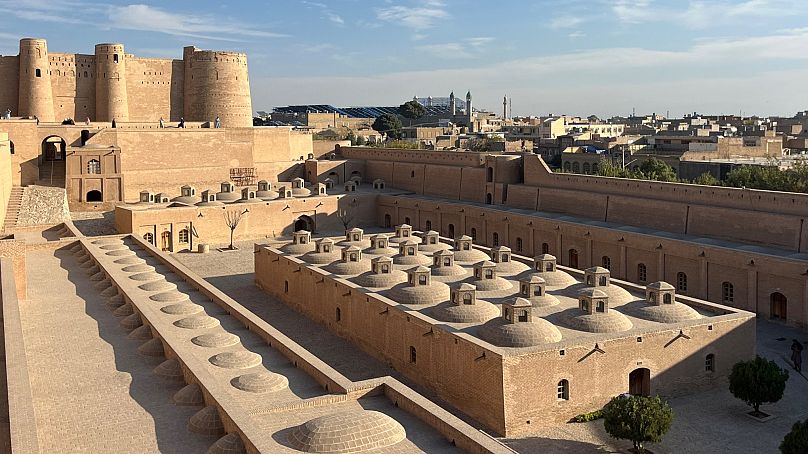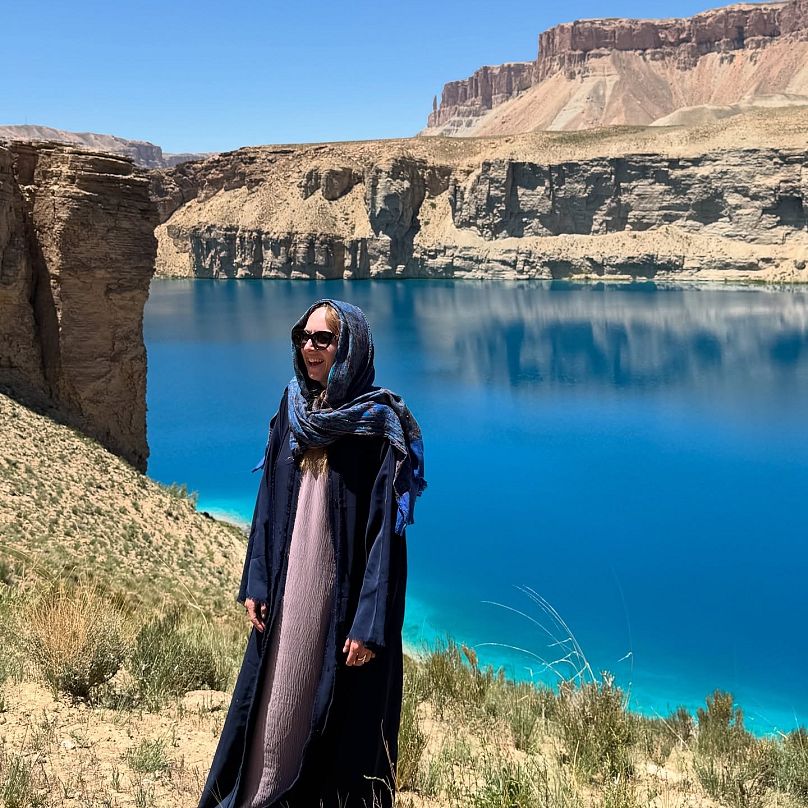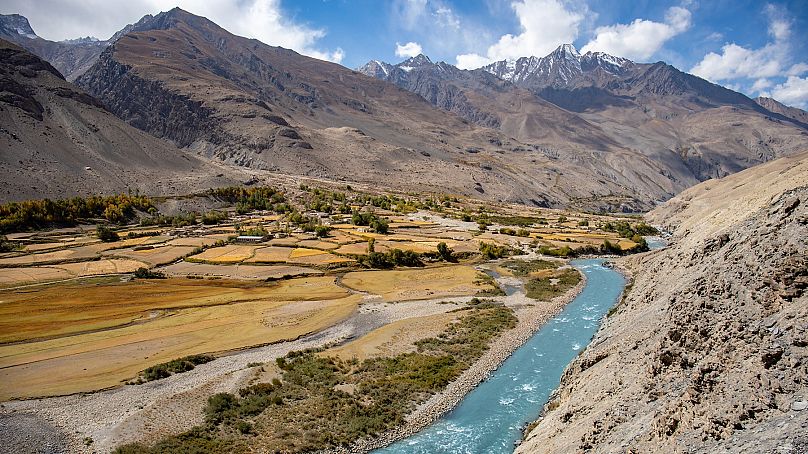Following the Taliban resurgence in 2021, Afghanistan has witnessed an unexpected boom in tourism - but is it really wise to visit?
One of the world’s most oppressive regimes is cashing in on the growing trend of ‘danger tourism’.
 ADVERTISEMENT
ADVERTISEMENT
 ADVERTISEMENT
ADVERTISEMENT
In 2021, the Taliban retook control of Afghanistan following a 20-year US military-led mission to destroy Al-Qaeda and stabilise the country.
The hardline Islamist group started seizing regions just weeks after troops were withdrawn, rapidly establishing itself as Afghanistan’s de facto government.
Since then, Amnesty International warns human rights violations have worsened, with Afghanistan stripping back its social progress and becoming the only country in the world where secondary and higher education is forbidden for women.
However, set upon the backdrop of gender persecution, targeted killings and draconian laws, an influx of travellers is hailingAfghanistan for its natural beauty, culinary delicacies and religious landmarks.
Tourism in Afghanistan
Verifying Afghanistan’s tourism figures is a challenge, as the National Statistics and Information Authority’s official website currently says “the data will be uploaded soon” when trying to access statistics.
However, earlier this year Deputy Minister of Tourism Qudratullah Jamal said almost 9,000 international tourists flocked to the country in 2024, while 3,000 visited in the first three months of this year.
Reports suggest that in August alone, Afghanistan welcomed a staggering 5,000 foreign tourists.
While these numbers may not seem huge compared to tourist hotspots like Spain and Greece, they show significant and sustained growth since the Taliban’s resurgence.
In 2021, only 691 international tourists visited the country. In 2022, that figure rose to 2,300 - followed by a 120 per cent spike in 2023 (7,000 foreign tourists).
Meet the travellers undeterred by the Taliban
Kieran Brown, a travel content creator and YouTuber, has been to more than 130 countries and visited Afghanistan for 10 days in March last year.
Fascinated by countries that most people are “too afraid to visit”, the 31-year-old says he was drawn to the Taliban-controlled country due to its “mysterious mix of beauty, history and resilience”.
Undeterred by travel warnings, Brown wasn’t put off by Afghanistan’s hostile reputation, and did his own research - including speaking to locals - to make sure he would feel safe.
Brown’s highlights were exploring the old streets of Kabul, the Blue Mosque in Mazar-i-Sharif, and connecting with locals about their everyday lives.
‘An eye-opening experience’
“The hospitality and the food were unbelievable,” he tells Euronews Travel. “It’s not a typical tourist destination but it’s one of the most eye-opening experiences you can have.”
Brown ended up interacting with members of the Taliban several times during his trip, but insists that most encounters were “surprisingly calm” and that he never felt threatened.
“They were [just] curious about what I was doing and checked my documents,” he adds.
“They were strict, but as long as I respected the rules and stayed polite, things went smoothly. It was definitely surreal, though, to be filming content while being questioned by Taliban members. They seemed mainly concerned about my own safety.”
‘I wanted to see Afghanistan for myself’
With almost a decade of experience working in unusual destinations, Zoe Stephens has visited Afghanistan three times in the last year.
“I don’t tend to worry about travel warnings,” she says. “I wanted to see Afghanistan myself to go beyond the headlines.”
The 31-year-old, who works as an international tour manager, first visited the country in September 2024 to plan a tour alongside local female guides - which is now offered at Koryo Tours.
Her favourite place to visit is Herat, the third-largest city in Afghanistan, which she describes as “liberal” and “very relaxed”.
“My favourite memories are simply enjoying snacks on the roadside on long scenic drives, enjoying tea and honey in a nomad beekeeper’s tent, and trying fresh mulberries,” she says.
Stephens warns that encountering the Taliban is unavoidable as there are so many checkpoints across Afghanistan.
However, she says these experiences were all “generally very pleasant” and that the militants are happy for tourists to be visiting.
“Sometimes you have negative experiences with the so-called ‘morality police’ who may police your dress or turn you away from certain sites like public parks,” Stephens adds.
Is tourism in Afghanistan ethical?
For many travellers, a country as controversial as Afghanistan is a big no-go.
However, James Willcox, owner of the travel company Untamed Borders and author of the Bradt Guide to Afghanistan, says that meaningful interaction between visitors and locals helps “normalise” the country – showing a side of Afghanistan that isn’t solely defined by politics or conflict.
“People are not their governments,” he tells Euronews Travel. “Visitors to Afghanistan experience the country on a human scale and see that, despite its challenges, there’s humour, beauty, and hospitality everywhere you go.”
At its best, this kind of cultural exchange reduces the stigma attached to places often seen only through the “prism of headlines about terror and extremism,” Willcox says.
"But this normalisation can also be complex and helps normalise a government which does not allow women to work,” he adds.
“One of our former female guides, for example, fled the country after the Taliban takeover and now runs virtual tours of Afghanistan from her new home in Italy as she is unable to work in Afghanistan under current legislation."
Some critics argue that tourism risks softening perceptions of the Taliban regime, especially one that has banned women’s voices from being heard in public and prevented women without male chaperones from using public transport.
Willcox acknowledges the dilemma but stresses that responsible tourism focuses on people, not politics.
“When travellers visit, they connect with individuals – families running homestays, local drivers, craftspeople – and that human connection is what endures,” he says.
"Beyond perception, the financial impact can be significant. Even small increases in tourism can bring vital income to local communities, supporting guides, guesthouses, and artisans who depend on visitors for their livelihoods."
Am I allowed to travel to Afghanistan?
Governments across Europe and even the world advise against all travel to Afghanistan, due to its volatile security situation and limited support for foreign nationals. Travelling to a red-listed country can also invalidate your travel insurance.
The UK’s Foreign, Commonwealth and Development Office (FCDO) warns that Brits are at a heightened risk of being detained in Afghanistan, which could result in “years of imprisonment”.
Ireland’s Department of Foreign Affairs and Trade declares a similar warning on its official website, due to Afghanistan’s high risk of terrorism and the “severe limitation of human rights in the country”.
Germany’s federal government, for example, does not even recognise the de facto Taliban government as the “legitimate government of Afghanistan” and closed its Embassy in Kabul back in August 2021. It advises against travel and urges German nationals to leave the country if possible.
While the Taliban may not be actively promoting tourism, they’re also not preventing visitors from arriving.














